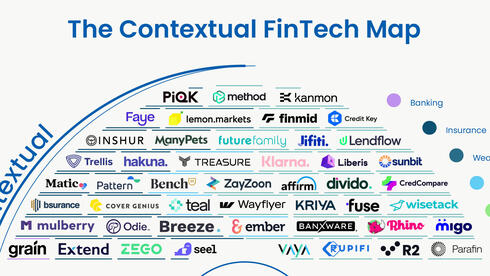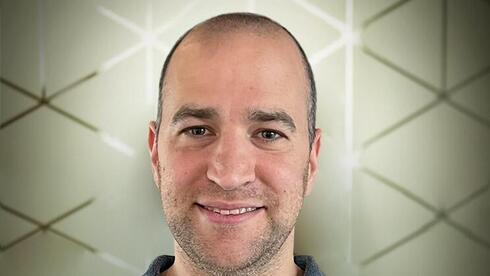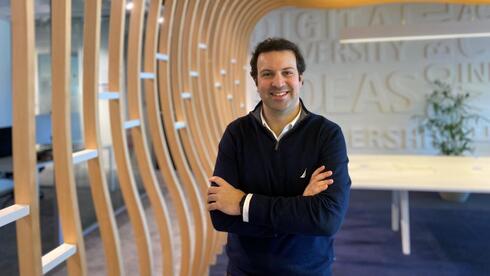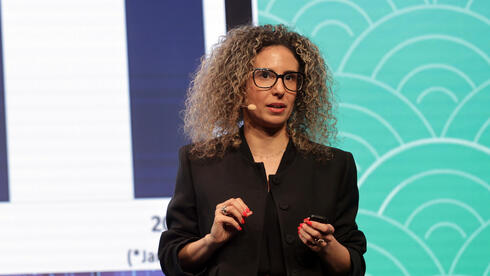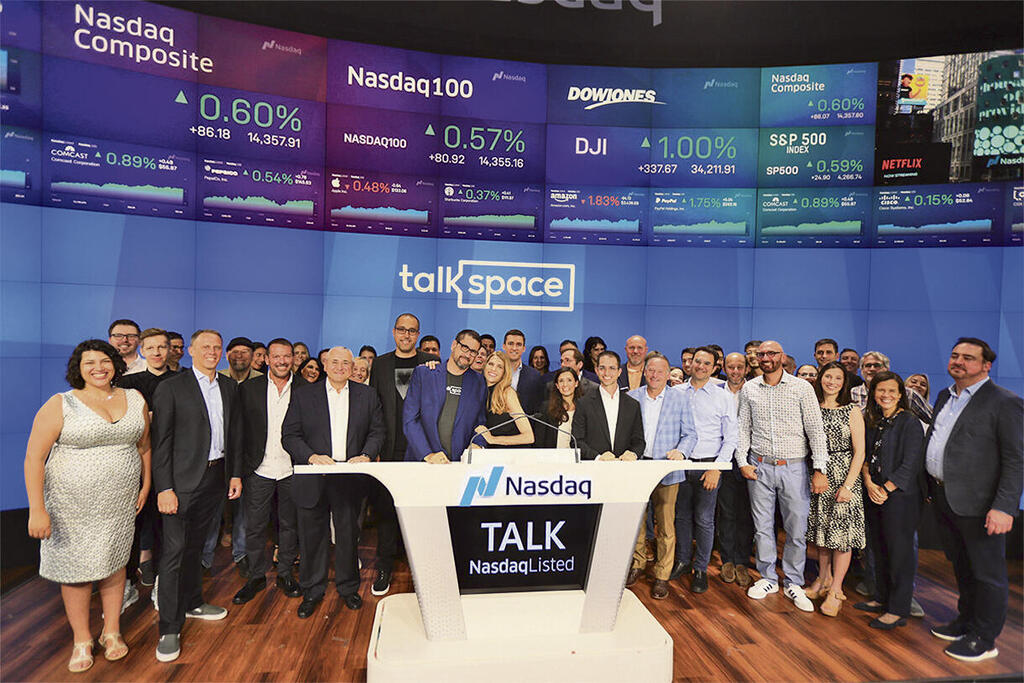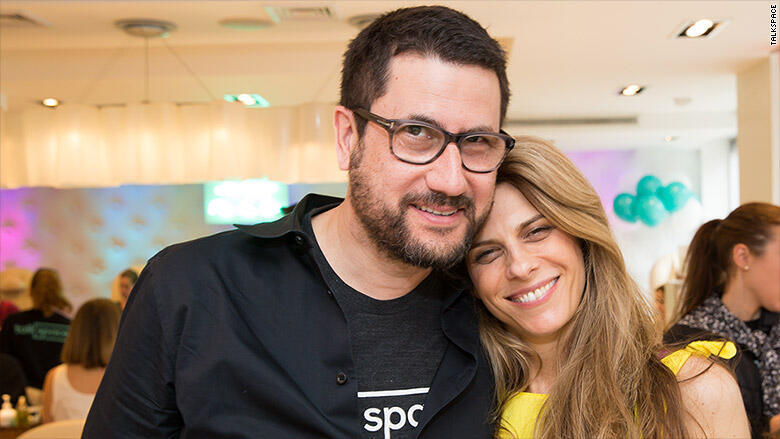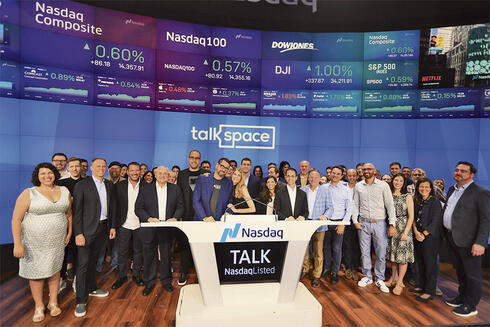
Talkspace - value destruction created by greed for a big and quick exit
Talkspace - value destruction created by greed for a big and quick exit
The case of the online mental therapy company founded by Roni & Oren Frank is particularly bleak. This is how Talkspace went from being a promising startup and a SPAC merger at a $1.4 billion valuation, to a sale to American Well at a seventh of the value
Will Israeli-American company American Well (Amwell) rescue the remote medicine company Talkspace, founded by the couple Oren and Roni Frank, from a sad decline? What was once one of the hottest startups to come out of Israel, but which currently trades at a market value of less than $100 million, is in advanced negotiations to be sold to a company founded by the brothers Ido and Roy Schoenberg, which also operates in the field of remote medicine.
The talks currently underway are around a price of $1.50 per share, which reflects a value of only $200 million for a company issued through a SPAC merger at a value of $1.4 billion in the summer of 2021. This is supposedly a 150% premium over the low price at which Talkspace is currently trading on the Nasdaq (60 cents per share), but in fact, it is only slightly more than the value of the cash in the company's coffers, which reached $150 million at the end of the third quarter. The transaction will be paid in American Well shares, which itself fell from a value of almost $10 billion at its peak last year, to a value of $1 billion at which it is traded today on the New York Stock Exchange (NYSE).
American Well told Calcalist that the company does not respond to rumors. Talkspace's response could not be obtained before publication of this article.
If the deal is indeed signed, it will mean Talkspace lost almost 90% of its value in less than two years. American Well already tried to purchase Talkspace a few months ago, at a value of about $450 million, but the negotiations blew up. In addition, California-based Mindpath was also interested in Talkspace and was willing to pay a similar price. What may push the deal over the finishing line this time is, among other things, the warning letter Talkspace received last Wednesday from Nasdaq in which it is warned against being delisted from trading. This is because the company's stock has been trading below the price of one dollar for three months, which means that it does not meet the basic threshold conditions for trading on the exchange. However, in the past, Talkspace's board of directors rejected proposals, some of which were not bad, certainly considering the current state of the company. At the beginning of November, it also finally appointed a permanent CEO, after operating under a temporary CEO for a whole year, since the removal of CEO and co-founder Oren Frank.
Although most of the activity of Talkspace, which employs about 500 people, is concentrated in the U.S., Israelis also have a connection to the company due to the holdings of local investment house Meitav and the insurance company Migdal. Meitav invested $3 million in the company in 2017, when Talkspace raised $31 million led by Qumara Capital, and it realized half of the holding at the time of the offering at a significant profit. Today, the investment house owns less than 5% of the company's shares. Migdal Insurance owns 2 million shares of Talkspace. Alongside Meitav and Migdal Insurance, Israeli venture capital companies Qumra Capital and Firstime Ventures have holdings of about 5% each in the company.
Talkspace's sad story is an illustration of the peripheral damage of the SPAC phenomenon that does not only amount to losses for investors, but also seriously damages the company itself and its business. SPAC, an acronym for Special Purpose Acquisition Company, is actually a company that issues and raises funds only to merge private companies into it within a specified period of time - usually two years. If the SPAC fails to complete a transaction within this period of time, the company returns the money to the investors plus interest. During 2020-2021, the phenomenon gained unprecedented momentum in the U.S., and the fundraising volumes of the SPACs reached dizzying numbers. To illustrate, in 2021, 613 SPAC issuances were carried out in which $162 billion were raised - approximately two times compared to the previous year. Due to the changes in the macroeconomic environment , chiefly the rising inflation and interest rates, the phenomenon has waned dramatically this year (83 deals in which only $13.2 billion were raised), and many companies are returning the funds to investors.
Talkspace is a prime example of a company that was prematurely issued and all because of greed. The company, which provides remote psychological treatment, was established ten years ago by the couple Roni and Oren Frank. The idea was excellent. During the pandemic it flourished in particular, and then purchase offers began to flow to the company according to a value of $700 million, and even $800 million. Insurance companies and companies in the field of psychological treatment and remote medicine recognized the good technology and the thirst for it in the market, even if the business model had not yet been fully developed. In the first phase, Talkspace was mainly based on private customers, but quite quickly the understanding began to seep in that the high customer acquisition costs, and the constant need for a huge investment in advertising, would make it difficult to reach a profit. While the highly accomplished Olympic swimmer Michael Phelps was recruited for its advertising campaign, Talkspace had already started talking about shifting its focus to the business market and selling the product to employers who would give it as a benefit to employees.
But then came the offer from a SPAC, and some of the shareholders in Talkspace were confused, blinded, and had a hard time refusing an offer at a $1.4 billion valuation. It was clear that it was a value that was not close to reality as the company's last private funding round took place in 2019 at a value of $300 million. The revenues, which amounted to $74 million, didn't justify the value, and above all was the understanding that the business model had to be changed, which of course would harm growth in the immediate term. Founders Oren and Roni Frank opposed the proposed SPAC offering, as did some shareholders, but a larger number of shareholders wanted the big and quick exit. This temptation, which admittedly injected $250 million into the company's coffers - and no less importantly, $300 million to the funds and founders - led to it being issued on the eve of a major change in direction in the business model.
In the rush to reach an exit, it seems that the funds missed, or perhaps ignored, the history of Doug Braunstein - the head of the SPAC company that proposed that Talkspace merge with it. Braunstein was formerly a vice president of the major U.S. bank JP Morgan, a detail that was emphasized by the SPAC, but in recent years he headed the Hudson hedge fund, which is considered to be a very active and aggressive fund.
Thus, for example, Braunstein's fund waged a well-publicized fight against Deutsche Bank in 2018. A year later, in 2019, Braunstein led a fight to replace the board of directors at USA Technologies, after reaching a 16% stake in the company, which he eventually won, received eight seats on the board and led a process of changing the company's name and rebranding. At the beginning of 2021, a struggle began around a company called eHealth which was also attacked at the same time by Starboard, another activist fund known for its aggressiveness, and which recently entered a significant position in the Israeli company Wix. Given this past, no one should have been particularly surprised that Braunstein would lead a move to replace Talkspace's entire management, including the founding couple, as indeed happened shortly after the merger was completed and Talkspace became a public company.
Today, of course, the same funds that sold plenty of shares at a handsome profit no longer want their names to be associated with the Talkspace affair. Now it’s the problem of the small investors who bought the goods on the basis of the numbers given in the presentations presented before the company went public. Although in the traditional photo from the opening of trading on Nasdaq quite a few of the faces of the investors in Talkspace can be recognized, today they are out of the picture.
Thus, for example, the prominent Israeli investor, Qumra, which already recouped its investment through secondary deals at the time of the offering, refused to answer Calcalist's questions regarding the future of Talkspace, even though it still owns about 5% of the company's shares. The other investors in Talkspace are mainly foreign funds. The first investor in the company, Firstime Ventures of Ilan Shiloah (owner of the McCann advertising agency that Oren Frank previously headed), Jonathan Benartzi and Nir Tarlovsky, which invested for the first time in Talkspace according to a value of only $5 million, has not yet given up completely, and is trying to fight the SPAC executives in an attempt to convince them to accelerate the change of its business focus and to appoint a CEO. A few months ago, the fund, which still owns about 5% of the company's shares, sent a letter in its name and in the name of several other shareholders to the board of directors demanding to appoint a permanent CEO urgently and to present a strategic plan for the future.
A week ago, Talkspace announced the appointment of Jon Cohen as CEO, in what may seem like a last-ditch attempt to stabilize the company. The day after the appointment, Talkspace's results revealed a lack of growth alongside a jump in losses. Since the beginning of the year, it has lost $61 million on revenues of $89 million, reflecting an increase of only 6% compared to the corresponding period in 2021. These numbers are very far from the projections for revenues of $200 million in 2022 that were given in the optimistic presentations prior to the merger with the SPAC. The company has already conducted an extensive round of layoffs and estimates that it will make additional cuts in the current quarter as well to stop the bleeding.
Talkspace's story can teach entrepreneurs quite a bit about the behind-the-scenes of the most glamorous startups, which Talkspace seemed to be during 2020, and even more about what goes on in the spacious meeting rooms of the venture capital funds that determine their fate.
In the case of Talkspace, this is not just another story of a fall in the stock, but what appears to be a story of a takeover, at first apparently of a voluntary nature before becoming more hostile. Right now, everyone at Talkspace is at odds with everyone else and meanwhile the company is fading. The founders are no longer there, having been sent home just five months after the IPO. Braunstein, who served as the chairman and initiator of the SPAC, was appointed interim CEO after the retirement of the Israeli couple, while recruiting his wife Samra Braunstein to the position of VP of Marketing at Talkspace. Later, Mark Hirschhorn, the VP of Operations who was slated to be appointed CEO, was also pushed out. The official reason for sending Hirschhorn home is particularly juicy - Braunstein's people claimed that Hirschhorn got into a fight with a bartender during a company event. Hirschhorn's history of problematic conduct also worked against him, after he was forced to resign from the position of CFO at Teladoc, one of the biggest players in the remote medicine market, who was also interested in buying Talkspace in the past, following an affair he had there with one of the employees.
The sad part regarding Talkspace's dismal story is that it could have become a significant arm in the activity of a company like Teladoc had it made the right decision when offered a deal at a value of $700-800 million. Talkspace developed an important product of value to public health, but poor decision making has meant that it is now fighting for its survival instead of claiming a significant part in the remote mental health care market estimated to soon reach some $52 billion.



